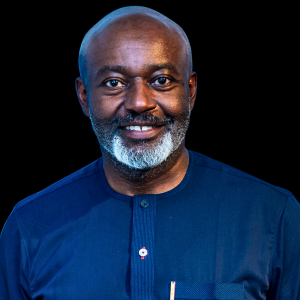Thank you programme director, Mr. Dan Moyane.
• Former President of Liberia and Patron of the African Women Leaders Network,
• Former Deputy President of South Africa and Executive Director of UN Women
• Honorable Ministers [Pandor, Dlamini-Zuma, Yacout Zaïdou, Zulu, all other Ministers, Director-Generals as well as Government Representatives],
• Representatives of the Diplomatic Corp, Traditional Leaders, Private Sector, Civil Society, think-tanks and academia.
• Fellow SENIOR colleagues from the UN system including UN Women, UNFPA, ILO, UNDP Distinguished guests, ladies and gentlemen, allow me to stand on protocols already observed.
The UNITED NATIONS family is very pleased to be associated with this important conference and process which provides an opportunity for male leadership to catalyse positive change and become champions who help shape the future of our society.
Violence against women and girls is one of the most widespread and persistent human rights violations today with long term impact on the victims, their families, the wider community and society at large.
The United Nations Secretary-General Antonio Guterres has said Gender inequality is essentially a question of power, in a male-dominated 2 world and a male-dominated culture. Power relations must be reversed.
The work around gender equality including the focus on ending violence against women and girls is very critical now more than ever. A bracing reflection: according to a recent UN Women report, in the last 12 months, 1 in 5 women and girls worldwide have experienced physical and/or sexual violence perpetuated by men as intimate partners or predators, it therefore goes without saying that at least 1 in 5 men worldwide, and hopefully not in this room, are culprits abusing women and girls.
Sustainable Development Goal 5 which seeks to achieve gender equality and empower all women and girls. This SDG is a critical driver to the achievement of all the other 16 goals. Halfway through, and with less than 7 years to go till we reach the 2030 Agenda for Sustainable Development, we are at an inflection and reflection point.
It can no longer be business as usual; we need to identify and put into action innovative ways to attain and exceed our goals for people and planet. This gathering and its collaborative endeavours is one such innovative way. This is why the UN in South Africa along with the wider UN system is honoured to be accompanying the African Union and partners on this journey.
The UN in South Africa is working closely with government, civil society and the private sector to end violence against women and girls and to support states in their efforts to resolve claims of their personnel’s children born abroad. This includes a sub-regional GBV programme that includes Botswana, eSwatini, Lesotho, Namibia, Zambia and South Africa.
Distinguished delegates,
I would like to take is opportunity to express my steadfast and unreserved commitment to championing positive masculinity, a cause that is not just a responsibility, but a moral obligation.
All men in the room and beyond are urged to reinforce their commitment and advance collective and individual actions to combat violence against women and children. Through championing Positive masculinity, we collectively promote healthy and constructive behaviors, attitudes, and values associated with being a man, instilling and reinforcing qualities such as responsibility, respect, courage, and leadership in young boys especially as they transition into manhood. We must encourage fathers to assume their parental responsibilities and support their children, even those born out of wedlock.
Distinguished delegates,
Countless women and girls in conflict and humanitarian contexts are victims of sexual exploitation and abuse by African Union and United Nations personnel deployed to protect them in peacekeeping and other settings. They often leave behind children in those countries when they return home.
This Conference is therefore our chance to consolidate our will and to address the structural drivers of violence at legislative, policy, economic, and social norm levels. To all the men in the room, my brothers and friends, let us engage as gender advocates AND speak out as active agents and stakeholders who CAN transform social norms, behaviours and gender stereotypes that perpetuate discrimination and inequality.
In closing,
let me echo the consistent sentiment of the United Nations Secretary-General, Mr Antonio Guterres, “We must stand with women activists. Together, let us stand up and speak out. Let’s build a world that refuses to tolerate violence against women anywhere, in any form, once and for all".
I thank you.





